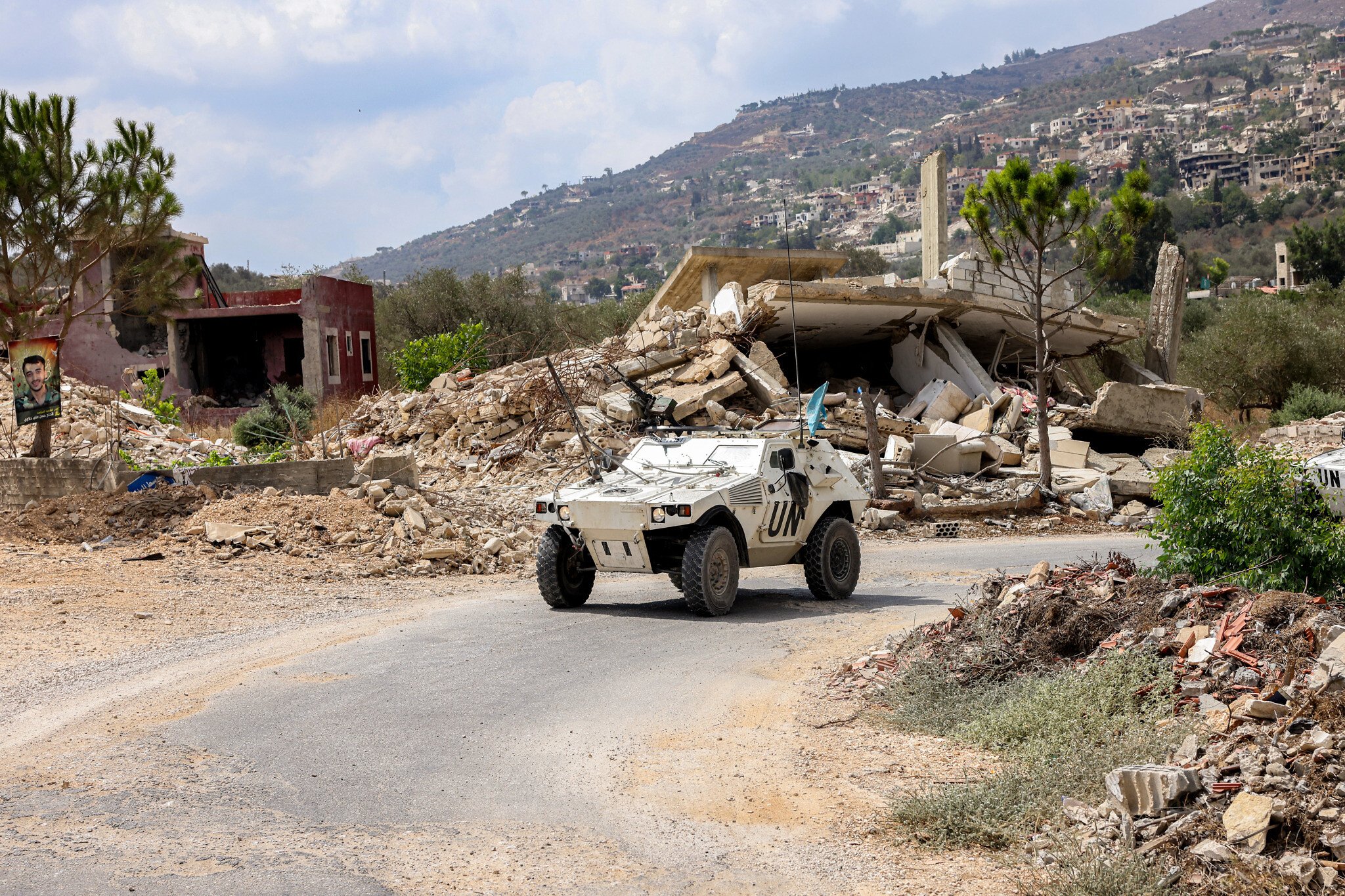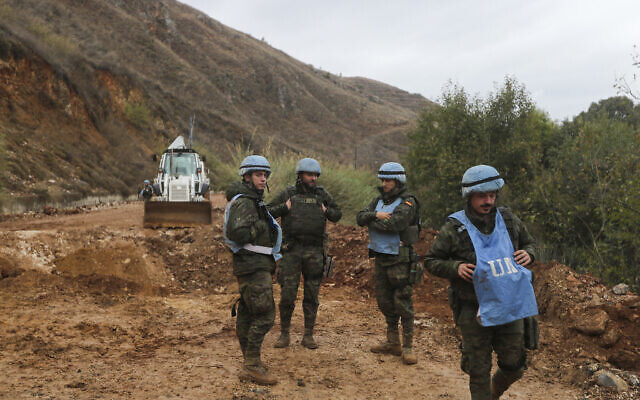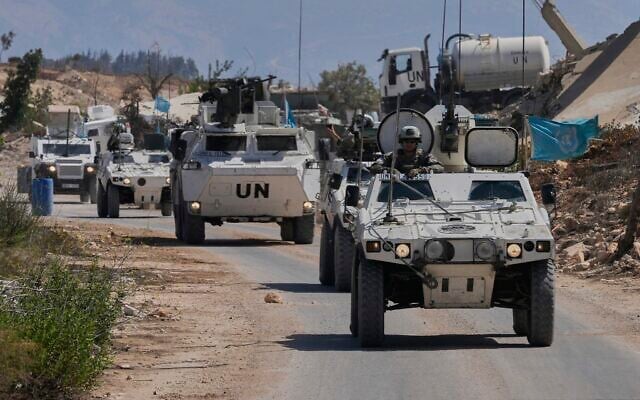



The UN Interim Force in Lebanon said Wednesday that Israeli drones dropped four grenades near peacekeepers in “one of the most serious attacks” on its personnel since a November ceasefire.
“Yesterday morning, Israel Defense Forces drones dropped four grenades close to UNIFIL peacekeepers working to clear roadblocks hindering access to a UN position,” the UN force said.
“One grenade impacted within 20 meters and three within approximately 100 meters of UN personnel and vehicles,” it added.
“This is one of the most serious attacks on UNIFIL personnel and assets since the cessation of hostilities agreement of last November,” which sought to end more than a year of hostilities between Israel and Lebanese terror group Hezbollah after the latter began attacking across the border in support of Gaza amid the ongoing war there.
UNIFIL did not report any injuries from the incident. There was no immediate comment from the IDF.
UNIFIL said the Israeli military had been informed in advance of its plans to carry out road clearance work near the de facto border southeast of the village of Marwahin. It said that out of concern for the safety of peacekeepers following the incident, the work was suspended.
UNIFIL said endangering the lives of peacekeepers constituted a violation of the 2006 UN Security Council resolution that formed the basis of last year’s ceasefire.
“Any actions endangering UN peacekeepers and assets, and interference with their mandated tasks are unacceptable and a serious violation of Resolution 1701 and international law,” it said.
The incident came days after Lebanon’s army said two personnel were killed when an Israeli drone that had crashed in the country’s south exploded. The IDF expressed regret for the incident, which it attributed to a “technical malfunction,” adding that it had opened an investigation.
The conflict between Israel and Hezbollah erupted when the Iranian-backed terror group began launching rockets at northern Israel in support of Hamas after it led the October 7 massacre in southern Israel that killed some 1,200 people and saw 251 taken hostage to Gaza. It eventually escalated into open war between Israel and Hezbollah by September 2024, which ended with a ceasefire at the end of November that year.
After a number of injuries among members of the UN peacekeeping force amid fighting between Israel and Hezbollah, Israel asked the force to leave southern Lebanon, but it refused.
Under the US-brokered ceasefire, Hezbollah and Israel were both required to withdraw from south Lebanon, though Israel has kept forces in several areas it deems strategic. It continues to conduct strikes across Lebanon in response to what it says are ceasefire violations.
The UN Security Council voted last week for UN peacekeepers to leave Lebanon in 2027, allowing only one final extension of their mandate after pressure from Israel and its US ally to end the nearly 50-year-old force.
Israel hailed the upcoming termination of UNIFIL and urged the Lebanese government to exercise its authority throughout its territory after Israel’s military devastated the Iran-backed Hezbollah.
With the US administration dangling a veto threat, the Security Council voted unanimously for a resolution that will extend UNIFIL’s mandate “a final time.”
UNIFIL, established in 1978, patrols Lebanon’s southern border with Israel.
Its mandate was expanded in 2006, following a month-long war between Israel and Hezbollah, to allow peacekeepers to help the Lebanese army keep parts of the south free of weapons or armed personnel other than those of the Lebanese state.
Israel has long argued that the force had failed in its mission, doing little to block Hezbollah from building up its forces near the Israeli border over decades.


